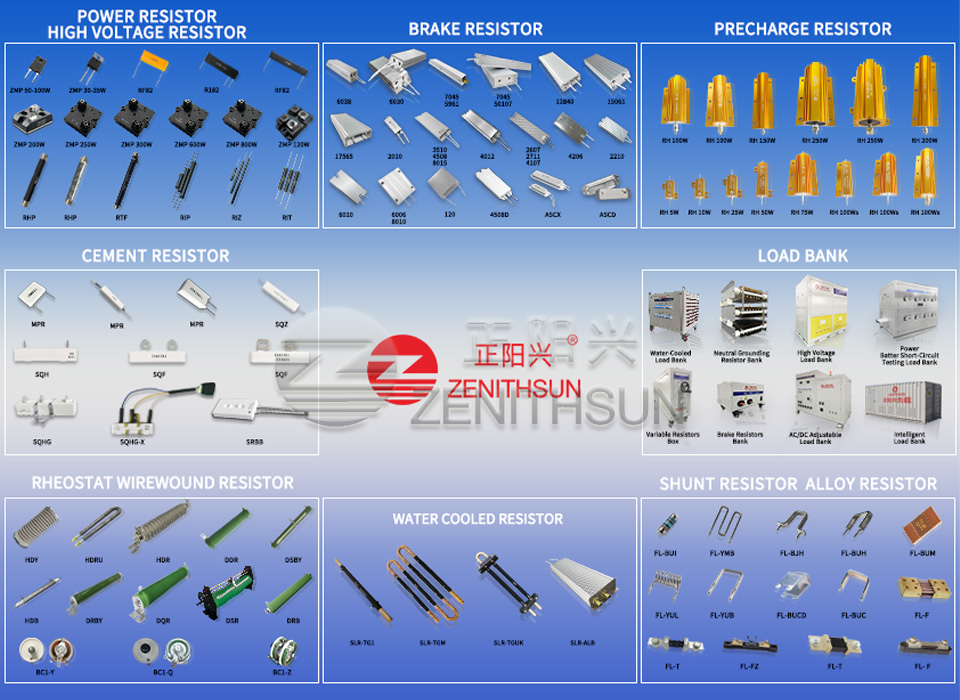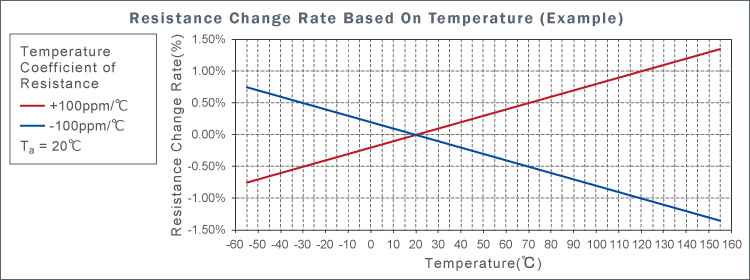Resistors are widely used in electronic circuits, playing a crucial role in controlling the flow of electrical current. There are various types of resistors on the market, and regardless of their type, they all have their own specific temperature coefficients, that is to say every resistor is influenced by temperature. In this article, we will explore the concept and the significance of Resistors temperature coefficients.
ZENITHSUN main Resistors Types
What is Temperature Coefficient of Resistor?
The temperature coefficient of a resistor, denoted by the symbol α (alpha), expresses how the resistance changes with temperature. It is typically specified in parts per million per degree Celsius (ppm/°C). There are two main types of temperature coefficients: positive and negative.
Positive Temperature Coefficient (PTC): Resistors with a positive temperature coefficient exhibit an increase in resistance as the temperature rises. This behavior is common in materials where electrical conductivity improves with higher temperatures, such as certain metal oxides.
Negative Temperature Coefficient (NTC): In contrast, resistors with a negative temperature coefficient experience a decrease in resistance as the temperature increases. This is often observed in semiconductors and other materials where conductivity decreases with rising temperatures.
Resistance Change Rate Based On Temperature ( Example)
Under what circumstances should the temperature coefficient of a resistor be considered?
Considering the temperature coefficient of a resistor is usually important in the following situations:
1. Environments with large temperature changes: If a circuit or electronic device is exposed to large temperature fluctuations during operation, the temperature coefficient of the resistor becomes important. In this case, choosing a resistor with an appropriate temperature coefficient can ensure that the circuit remains stable over different temperatures.
2. Precision circuits: In some circuits that require very precise resistance values, especially in applications such as measurement, sensors, and precision amplifiers, the temperature coefficient of the resistor needs to be considered. Precision circuits often need to provide accurate and stable output over different temperatures.
3. Industrial Applications: In some industrial applications, equipment may be affected by high or low temperature environments. In this case, the temperature coefficient of the resistor is a critical design parameter to ensure that the performance of the circuit is not affected by temperature changes.
4. Temperature compensation: Some applications require the use of resistors for temperature compensation to ensure normal operation of the circuit under different temperature conditions. In this case, it is necessary to select a resistor with an appropriate temperature coefficient.
The proper selection of resistors ensures the stability and effectiveness of electronic systems. Engineers and designers must carefully evaluate the temperature characteristics of resistors to meet the specific requirements of their applications and to create robust and reliable electronic solutions.
When selecting a resistor, the temperature coefficient information of the resistor can usually be found in the specification sheet provided by the manufacturer.
Shenzhen Zenithsun Electronics Tech. Co., Ltd is a professional resistors manufacturer, has 20 years of experience, and has professional engineering team to help users choose the correct resistors.








